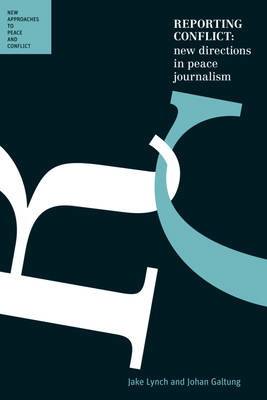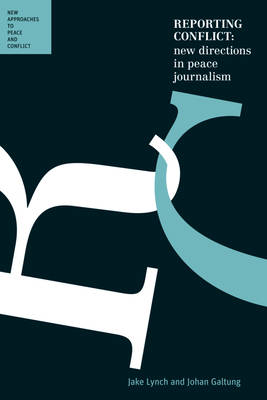
Bedankt voor het vertrouwen het afgelopen jaar! Om jou te bedanken bieden we GRATIS verzending (in België) aan op alles gedurende de hele maand januari.
- Afhalen na 1 uur in een winkel met voorraad
- In januari gratis thuislevering in België
- Ruim aanbod met 7 miljoen producten
Bedankt voor het vertrouwen het afgelopen jaar! Om jou te bedanken bieden we GRATIS verzending (in België) aan op alles gedurende de hele maand januari.
- Afhalen na 1 uur in een winkel met voorraad
- In januari gratis thuislevering in België
- Ruim aanbod met 7 miljoen producten
Zoeken
Reporting Conflict
New Directions in Peace Journalism: New Approaches to Peace and Conflict
Jake Lynch, Johan Galtung
Paperback | Engels
€ 50,45
+ 100 punten
Omschrijving
Journalists control our access to news. By pitching stories from particular angles, media set the agenda for public debate. In Reporting Conflict, Jake Lynch and Johan Galtung challenge reporters to tell the real story of conflicts around the world. The dominant kind of conflict reporting is what Lynch and Galtung call war journalism: conflicts are seen as good versus evil, and the score is kept with body counts. The media's handling of 9/11 and the wars in Afghanistan and Iraq highlight the one-sided reporting that war journalism creates. Peace journalism uses a wider lens: why not report what caused the conflict, and how it might be resolved? Lynch and Galtung show how journalists could have taken a broader approach to reporting conflicts like the Korean War and the NATO bombing of Kosovo to spark a more constructive public debate. This provocative book is essential reading for everyone who wants the media to tell the whole truth about conflict.
Specificaties
Betrokkenen
- Auteur(s):
- Uitgeverij:
Inhoud
- Aantal bladzijden:
- 225
- Taal:
- Engels
Eigenschappen
- Productcode (EAN):
- 9780702237676
- Verschijningsdatum:
- 1/12/2010
- Uitvoering:
- Paperback
- Formaat:
- Trade paperback (VS)
- Afmetingen:
- 152 mm x 226 mm
- Gewicht:
- 362 g

Alleen bij Standaard Boekhandel
+ 100 punten op je klantenkaart van Standaard Boekhandel
Beoordelingen
We publiceren alleen reviews die voldoen aan de voorwaarden voor reviews. Bekijk onze voorwaarden voor reviews.









